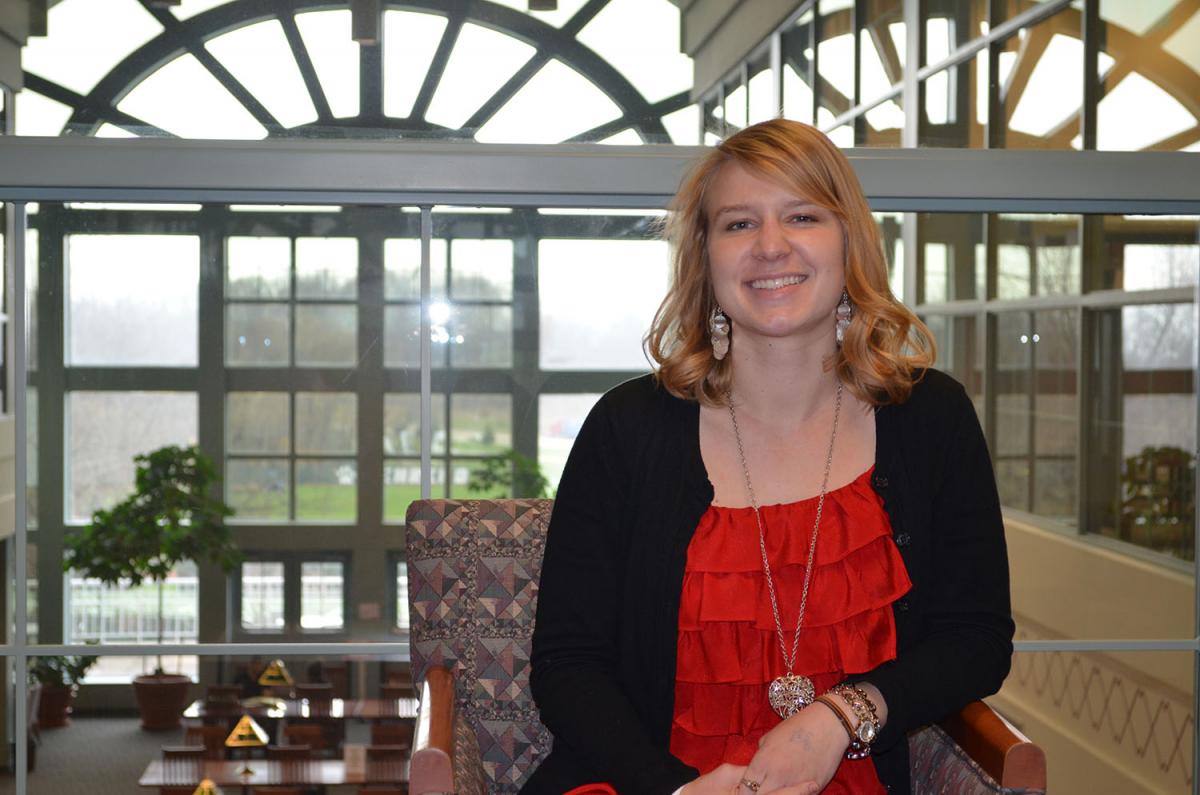 Danielle Ropp sat quietly toward the center of the table as her legs shook under the tablecloth, hidden from the audience seated in front. Her quiet demeanor, indicative of her anxiousness, would soon subside.
Danielle Ropp sat quietly toward the center of the table as her legs shook under the tablecloth, hidden from the audience seated in front. Her quiet demeanor, indicative of her anxiousness, would soon subside.
After all, every living thing thrives in its natural habitat, and that’s exactly where Ropp was once the panel discussion got underway.
“I’ve just always loved history. Whenever I hear an interesting fact, I commit it to memory,” said Ropp, a junior History major at Penn State Erie, The Behrend College.
Ropp displayed the depth of her historical knowledge by participating in a panel discussion of the WQLN documentary Perspective: Jewish History, Parts I and II at Mercyhurst University in Erie on April 22.
The Folsom, California, native earned a spot on the panel as well as $500 after winning first place in WQLN and Mercyhurst University’s “Story of the Jews” college essay contest. The prompt for the contest was: “How has history shaped the modern perception of Jews?”
Other panel participants included: Dr. Joshua Ezra Burns, assistant professor of theology at Marquette University; Rabbi John Bush, Temple Anshe Hesed; Dr. Randall Howarth, professor of ancient history at Mercyhurst University; Dr. Olena Surzhko-Harned, assistant professor of political science at Mercyhurst University; and Dr. Robert von Thaden, Jr., associate professor of religious studies at Mercyhurst University. The panel was moderated by Kim Young, instructor in journalism at Penn State Behrend.
Ropp’s essay was titled “The Crucifixion Shaping Modern Jewish Perceptions,” and it discussed how Jewish individuals are still viewed negatively because of their perceived participation in the crucifixion. Ropp said her own perception was vividly changed through her research.
Ropp found edicts from past Popes that absolve blame for the crucifixion away from Jewish people, but she said that message has not permeated within the general public.
“The fundamental core of Christianity is that Jesus had to die. These people were blamed for this, but it wasn’t their fault,” Ropp said. “Today’s Jews are also different from the Jews back then. You cannot blame people for actions that happened 2,000 years ago.”
While Ropp thoroughly enjoyed writing the essay, she said she was surprised she won.
“This is definitely one of the biggest things I’ve ever accomplished,” Ropp said. “The fact that I won just makes me want to do it again.”
Given Ropp’s career aspirations, it’s likely the essay was just the beginning. Ropp plans to pursue a master’s degree in secondary education upon graduation in 2015 and then plans to attain a doctorate in history. Her ultimate goal is to spread her knowledge as a college professor.
“I can’t imagine myself doing anything but history,” Ropp said.